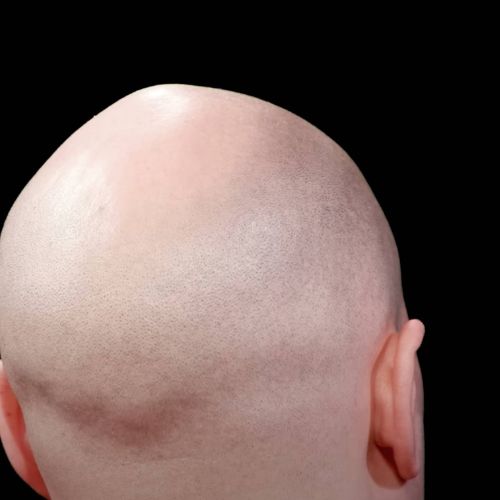Every once in a great while, the fitness and health industries come across an ingredient so remarkable, it’s hard to believe it’s natural. Fenugreek is just such an ingredient. In the last few months, I’ve had the chance to spend extensive time researching and evaluating scientific studies on this ancient seed, and the results have been phenomenal.
In recent years, Western science has crept up on evidence supporting various uses for Fenugreek, and one such use is for hair growth. It turns out that the phytohormonal properties and antioxidant effects of Fenugreek can not only stop hair shedding, but actively help you regrow lost hair.
Quick Hits
How Hair Loss Works
In an article just a couple of weeks ago on D-Aspartic acid and hair loss, I wrote about the role of DHT in our bodies. The short version of this story goes like this: in our early years, DHT helps young men grow body hair, and lengthens their vocal chords for a deeper voice; in later years, DHT causes male pattern baldness and enlarged prostates.
The good news is that many ingredients used to increase Free Testosterone (like Fenugreek) can also have beneficial effects on our DHT.

In addition to DHT, factors that can lead to hair loss include the stress hormone Cortisol, and free radicals attacking our hair at its source in the follicle. Which, it turns out, are two more things Fenugreek may be helpful with.
Fenugreek and Hair Loss
First we’ll talk about some clinical studies showing Fenugreek actually stimulated hair regrowth, and then we’ll talk about the mechanisms of action.
Clinical Studies
In the first study, participants actually took a supplement capsule containing various strengths of Fenugreek, or a placebo.
All the Fenugreek groups had hair regrowth, and that’s not all. In detailed questionnaires, they reported their hair was thicker, stronger, and didn’t fall out from styling. Results in this study took only 6 months, and again, required no special shampoos, washing, or treatment.
The next study did use a shampoo, which was essentially green tea, vegetable oil, and Fenugreek oil from seeds. This study not only stopped hair loss, but led to hair regrowth in patients across racial demographics. What’s more, they have photographic evidence.
Neither of these studies reported any side effects, and in questionnaires after the study, participants reported satisfaction with their results. Meaning the hair regrowth wasn’t simply a parlor trick–the people loved the hair they got back.
How It Works
DHT
Since we’ve already covered how DHT leads to hair loss, let’s get to Fenugreek and DHT. In a foundational study of this herb and our hormones, researchers found a dependable and predictable association–as Fenugreek use continued, DHT continued to fall. This is because Fenugreek keeps Free Testosterone from converting to DHT.
Antioxidants
Another effect long-known to scalp and hair loss researchers is that Antioxidants play a huge role in preventing shedding due to poor scalp condition. Here, again, we see Fenugreek step into a leading role. A study from just a few years ago indicates that Fenugreek is such a strong Antioxidant it can help heal wounds. Anything with that powerful antioxidant effect can undoubtedly improve scalp conditions.

Final Word
Fenugreek has already proven itself in supplements for male health and Testosterone. And for some true-believers, it is the best pro-lactant food a new mother can eat. Now, based on all the evidence I could gather and evaluate, Fenugreek has another arrow in its quiver: hair regrowth.
In no study or evaluation of the component mechanisms of action did I find anyone finding against Fenugreek. No study said it didn’t work, no study said it can’t help with DHT, and no study said it didn’t have antioxidant benefits.
Leaving us only with the positive studies–which all indicate Fenugreek can help stop hair loss and stimulate hair regrowth. All without any side effects, and from an all-natural herb that can either be used topically or internally.

